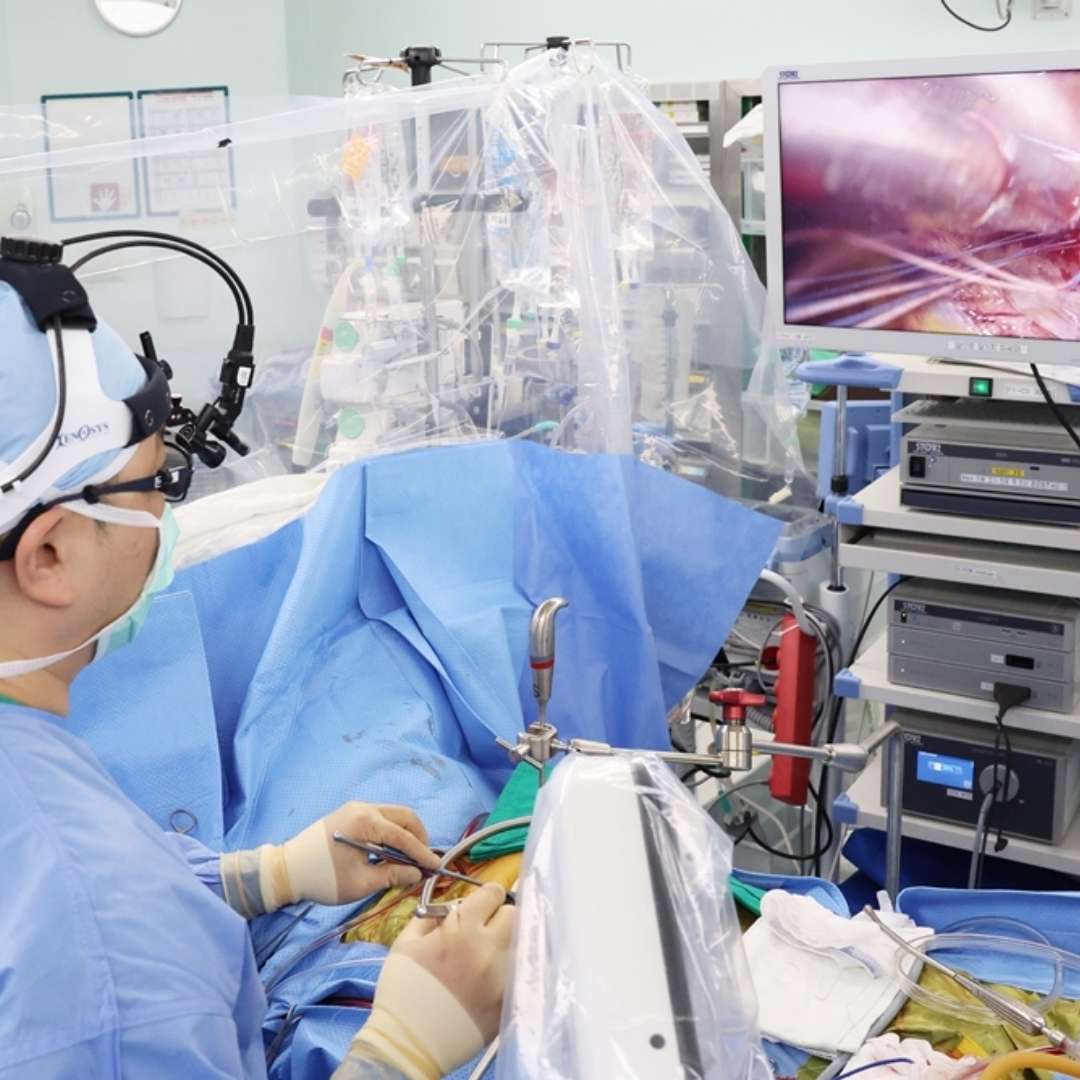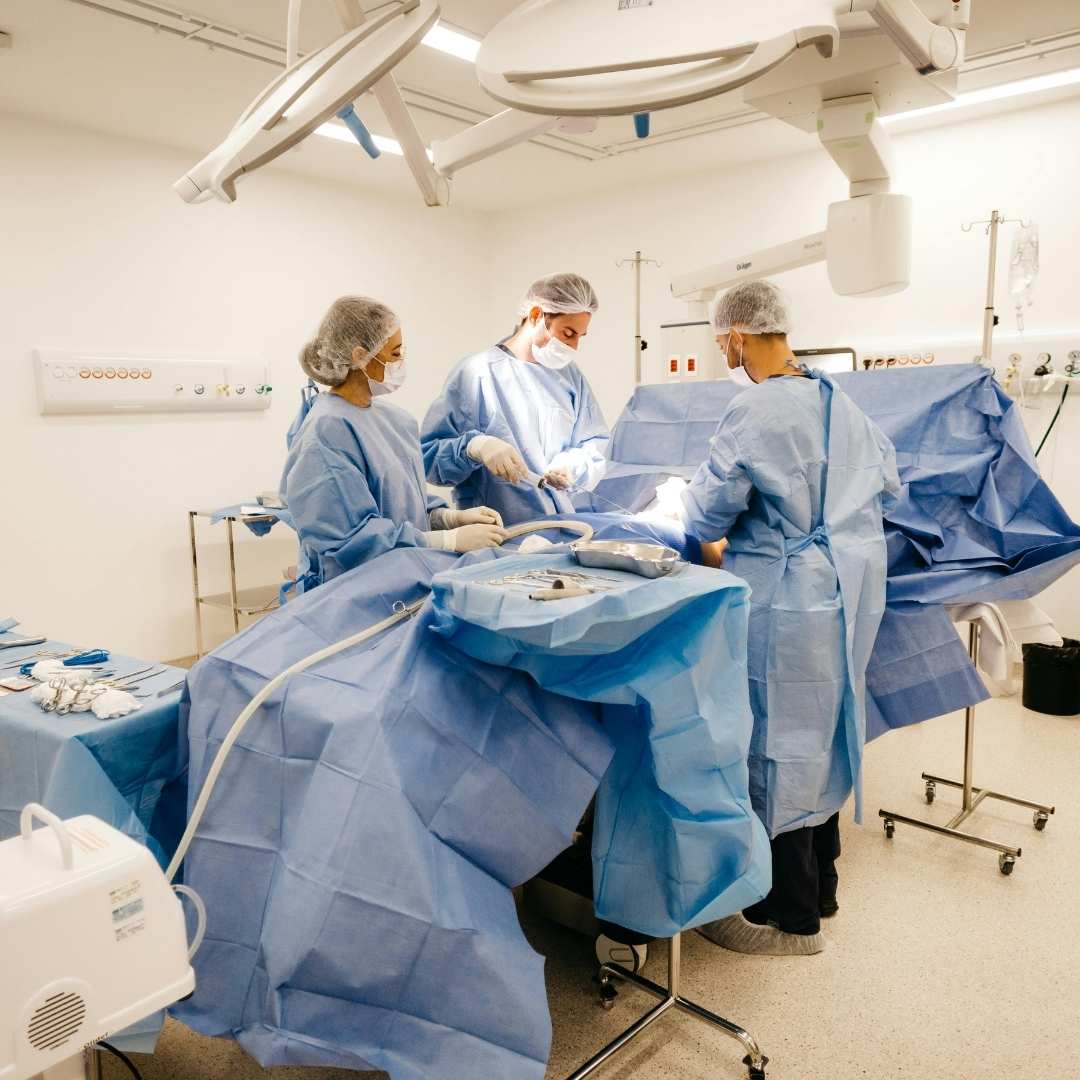Minimally Invasive Heart Surgery
Introduction
Dr. Asher George Joseph specializes in advanced cardiac surgery with a strong focus on minimally invasive heart procedures. His expertise combines modern surgical techniques with absolute dedication to patient safety and quick recovery. By reducing surgical trauma and enhancing precision, patients experience shorter hospital stays, faster healing, and better outcomes. With years of expertise, Dr. Asher George Joseph provides exceptional care that improves quality of life and delivers lasting solutions for patients requiring complex heart surgeries.
Every patient receives an individualized treatment plan designed using advanced imaging, detailed evaluation, and collaboration with a dedicated cardiac team. Dr. Asher George Joseph ensures that even the most complex cases, including valve disorders, coronary artery disease, and congenital conditions, are managed with unmatched precision. His patient-centered approach emphasizes transparent communication, compassionate guidance, and continuous support throughout the recovery process. By combining global medical standards with local expertise, he delivers reliable solutions that inspire trust, build confidence, and ensure positive long-term outcomes for patients and their families.
When Is It Needed?
Blocked Arteries
Blocked coronary arteries reduce blood flow, causing chest pain and fatigue; minimally invasive bypass restores circulation and improves heart health.
Valve Disease
Valve disease disrupts circulation and strains the heart; minimally invasive repair or replacement restores valve function and speeds recovery.
Congenital Defects
Certain congenital heart defects need correction; minimally invasive surgery offers effective repair with faster healing and minimal scarring.
Chest Pain
Persistent chest pain may signal coronary disease; minimally invasive interventions relieve symptoms, restore blood flow, and improve daily activity.
Breathlessness
Breathlessness during exertion can indicate cardiac dysfunction; minimally invasive procedures significantly improve heart performance and reduce respiratory symptoms.
Fatigue & Palpitations
Unexplained fatigue or palpitations may reflect heart rhythm issues; minimally invasive treatments restore rhythm and enhance patient energy levels.
Advanced Heart Treatments
Procedure and Process Treatment

Keyhole Surgery
Small incisions allow advanced heart procedures with less pain, quicker recovery, reduced hospital stay, and minimal scarring compared to traditional open-heart surgeries.

Endoscopic Surgery
Endoscopic surgery uses small instruments with cameras, providing clear visualization, reducing surgical trauma, minimizing complications, and ensuring quicker recovery for patients requiring minimally invasive heart procedures.

Hybrid Approach
Combining catheter-based and surgical techniques, hybrid procedures reduce risks, improve safety, and allow quicker recovery for complex heart conditions needing minimally invasive treatment.
Why Choose?
Dr. Asher George Joseph in Bangalore?
Dr. Asher George Joseph is a leading cardiothoracic and transplant surgeon specializing in minimally invasive cardiac procedures. With his expertise, patients benefit from safer surgeries, quicker recovery, and better long-term outcomes. He began his medical training in 2007 and has been practicing cardiothoracic surgery since 2013. His qualifications include:
- MBBS, MS, M.Ch in Cardiothoracic and Vascular Surgery
- MRCS from Edinburgh, United Kingdom
- FACS from the United States of America
- Fellowship in Cardiothoracic Transplant and Mechanical Circulatory Support from Manchester, United Kingdom
Testimonials
Our Happy Patients
I underwent minimally invasive bypass surgery under Dr. Asher George Joseph. Recovery was smooth, pain was minimal, and his guidance throughout the process made my entire journey comfortable and highly successful.
Frequently Asked Questions
Minimally invasive heart surgery uses smaller incisions instead of open chest approaches, reducing recovery time, pain, and complications, while delivering equally effective treatment for several cardiac conditions.
Recovery varies but is usually faster than open-heart surgery. Most patients return to normal activity within weeks, with proper rehabilitation, follow-up, and lifestyle adjustments ensuring long-term health.
It is recommended for patients with valve disease, coronary artery blockages, or congenital defects, where suitable, offering less trauma, quicker healing, reduced scarring, and effective long-term results.
Yes, like all surgeries, risks include bleeding, infection, or complications. However, with expert care, careful monitoring, and modern techniques, outcomes are generally excellent and risks are significantly minimized.
Yes, elderly patients are often good candidates. With comprehensive evaluation and tailored surgical planning, minimally invasive techniques offer safer alternatives, quicker recovery, and improved outcomes compared to traditional methods.
Preparation involves medical evaluation, imaging, and preoperative instructions. Following doctor’s guidance regarding medications, lifestyle, and pre-surgical care ensures safer outcomes and smooth recovery after minimally invasive procedures.
After surgery, patients must follow heart-healthy diets, exercise, regular check-ups, and prescribed medications. These changes prevent complications, support healing, and improve long-term cardiac health outcomes.
Success rates are high due to modern techniques. Patients experience quicker recovery, less pain, improved heart function, and long-term quality of life following minimally invasive surgical treatments.